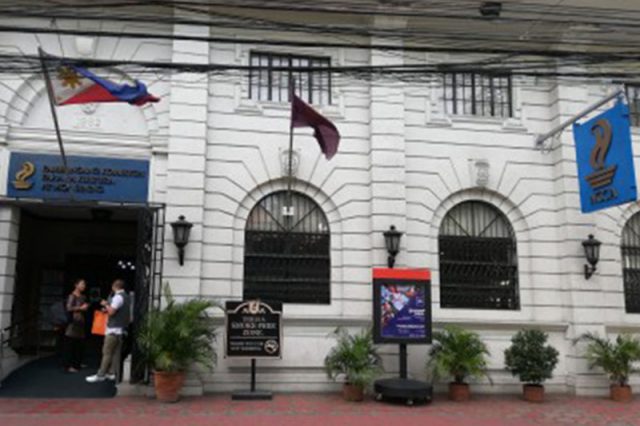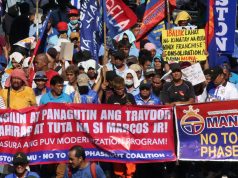
Fears of a worsening “historical distortion” mounted after government agencies preserving history and culture reportedly have lower budgets under the proposed allocation for 2023.
Rep. Arlene Brosas (Gabriela Women’s party-list) said that under the Marcos administration’s National Expenditure Program (NEP) for next year, four key agencies will have their budgets cut.
According to her, these are the National Commission for Culture and Arts (NCCA), National Historical Commission of the Philippines (NHCP), National Archives of the Philippines (NAP) and the National Library of the Philippines (NLP).
Brosas, through her party-list, said they saw the following percentage decrease compared to the 2022 General Appropriations Act.
- NCCA — 83.90% decrease (from 156,283 million to 25,163 million)
- NHCP — 27.26% decrease (from 292,516 to 212,772)
- NAP — 25.27% decrease (from 221,139 to 165,259)
- NLP — 22.64% decrease (from 208,275 to 161,122)
It was last Monday when Budget Secretary Amenah Pangandaman turned over the 2023 NEP and President Ferdinand Marcos Jr‘s accompanying message to House Speaker Martin Romualdez.
Meanwhile, it’s not the first time that NCCA—which suffered the largest cut in the proposal—experienced a budget cut.
Last year, the Department of Budget and Management reportedly approved a P29.38 million funding for the agency, which suggested an 82.8% budget cut. It received P156.28 million in the end, albeit lower than what it originally proposed.
For Brosas, the newly-proposed budgets seem “a political statement from the Marcos Jr. administration that they do not care about history, and that they are hell-bent on doing whatever it takes to conceal the truth from the Filipinos.”
“The Philippines has entered the age of historical disinformation and distortion, and these budget cuts on key agencies on history and culture will make Filipinos even more vulnerable to historical revisionism,” the lawmaker added.
Brosas’ party-list also noted that the NHCP’s proposed budget was cut despite the agency’s request for higher funds.
Gabriela said that the agency will be using it to restore heritage homes, churches, and other historical and cultural properties, including the Gabriela Silang Gallery affected by the earthquake in the Ilocos region.
In relation to the proposed budgets, Romualdez assured that the House would “effectively respond to the needs of the people, especially in addressing the continued impact of the health crisis, in creating more jobs, and ensuring food security.”
“The budget will be [a] product of the entire House of Representatives, where the majority will listen to the minority’s concerns and of source, we as the representatives of the people, will also be attuned to their needs,” he added.
On ‘historical distortion’
Last May, a historian revealed that “contingency plans” were being drafted after some Filipinos raised concerns about sources and references related to the Martial Law era.
A Twitter user previously suggested that they should be archived online.
RELATED: Historian says ‘contigency plans’ drafted as calls to preserve Martial Law references mount
Facebook users had also appealed for the public to “take care” of their soft and hard copies of books on Martial Law for fear that these will be “banned or whitewashed.”
“We need to fortify ourselves to fight against historical revisionism!” a Filipino wrote before.
The term “historical distortion” or “historical revisionism” is often associated with attempts to revise historical narratives relating to late dictator Ferdinand Marcos Sr‘s regime, in which nine years of it were under martial rule.
The period saw various human rights cases of abuse and violations, curtailment of civil liberties, extrajudicial killings and unsolved disappearances, media oppression and economic recession.
Last August 21, most government agencies were mum on social media as the country commemorated Ninoy Aquino Day, a special non-working holiday remembering the late senator’s death.
Some police stations downplayed his assassination and accused Aquino of being a guerilla instead.
There were also changes in the wording of Marcos Jr’s first holiday proclamation in the paragraph about the EDSA People Power Revolution.









